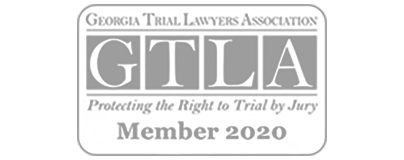Home | Glossary of Personal Injury Terms
Glossary of Personal Injury Terms
Navigating the world of personal injury law can be daunting, especially for those dealing with the aftermath of an accident. Whether you are dealing with the repercussions of an accident, contemplating legal proceedings, or simply aiming to enhance your knowledge of personal injury law, this resource crafts straightforward and precise definitions for important legal terms and concepts. By delving into this glossary of personal injury terms, you will acquire a deeper understanding of the language crucial for navigating the legal landscape in personal injury cases. Our goal is to equip you with the information necessary to make well-informed choices and gain a clearer comprehension of the legal processes that may affect your life.
At The Jewkes Firm, our aim is to ensure you are well-informed throughout the entire process, starting from day one. Our website features a vast collection of blog posts covering an extensive array of topics, allowing our clients to familiarize themselves with nearly any subject matter. This personal injury legal glossary serves a similar function. It offers a convenient reference tool for you to quickly look up straightforward definitions of terms that you are likely to encounter while pursuing compensation from negligence claims. Whether you are contemplating legal action or are already involved in a case, grasping these terms is crucial to understanding your rights and options.
A B C D E F G H I J K L M N O P Q R S T U V W
A
Abstract of Title — A comprehensive compilation of all legal documents and records relevant to a specific piece of real estate.
Accident Report — A comprehensive and formal account of an incident recorded at the scene by an authorized individual, such as a police officer or healthcare personnel.
Act of God — Natural events that occur independently of human intervention, such as floods, earthquakes, or severe storms.
Affidavit — A formal written declaration made under oath, often used as evidence in legal proceedings.
Alternative Dispute Resolution (ADR) — The process of settling legal conflicts through means other than traditional litigation. Refer to the terms “arbitration” and “mediation” for further details.
Answer — A formal written reply to a legal complaint issued by a defendant; it constitutes the defendant’s official response in the legal process.
Appeal — A party dissatisfied with a lower court’s verdict can request a higher court to overturn it by filing a petition for appellate review.
Arbitration — A process in which a neutral third party conducts hearings and resolves disputes between the plaintiff and defendant, delivering a binding decision. Often regarded as a simplified version of court proceedings, this third party may be an off-duty judge or attorney. The parties involved agree beforehand that the arbitrator’s ruling will be conclusive. Thus, arbitration is typically faster, more efficient, and cost-effective compared to litigation.
Assignment of Benefits — The act of transferring insurance policy benefits to another entity, which requires written consent from the insured individual. Commonly seen when patients designate their medical benefits to healthcare providers so payment can occur directly to them.
A
Assumption of Risk — The concept that individuals may voluntarily accept certain risks, which can limit their ability to claim damages if an injury occurs.
Attorney-Client Privilege — The confidential nature of communications between a lawyer and their client, protecting the information shared during legal consultations.
B
Bad Drug — See Defective Medication
Bad Faith Claim — In insurance contexts, this term refers to a legal claim against an insurance provider for unfair practices. Examples include unjust denial of claims or failure to negotiate settlements.
Benefit — In the context of personal injury law, a benefit constitutes financial support received from an employer, insurer, or governmental program (like social security) during periods of illness, disability, or job loss. This includes compensation for lost wages and direct payment by an insurance provider for surgical procedures.
Bodily Injury — Any physical harm inflicted on a person. This encompasess a range of injuries from minor bruises to severe conditions like broken bones. Bodily injury can arise from accidents, negligent behavior, or intentional acts.
Breach of Duty — This term refers to the failure to fulfill the standard of care that a reasonable individual would uphold under comparable circumstances. In the realm of personal injury law, demonstrating a breach of duty is critical for establishing negligence.
Burden of Proof — The responsibility to demonstrate the truth of a claim in legal proceedings. In personal injury cases, it typically lies with the plaintiff, who must substantiate their allegations, such as proving negligence on the part of another party.
C
Causation — The act of making something occur. Causation refers to the process through which an event is brought about. In negligence lawsuits, the plaintiff must demonstrate that their injury resulted directly from an action or inaction by the defendant.
Claim — A claim represents a formal request for compensation due to physical or emotional harm incurred by the plaintiff, often as a result of the defendant’s negligence. You can direct this request to an insurance company seeking coverage for damages or injuries.
Claim Adjuster — An intermediary between the insured and the insurance company, tasked with investigating and managing claims on behalf of the insurer. They are responsible for approving medical treatments and rehabilitation plans while representing the interests of the insurance company.
Comparative Negligence — A legal doctrine utilized by courts to allocate fault in negligence cases. It determines the extent to which each party’s negligence contributed to the incident. For example, if a court finds the defendant 60% at fault and the plaintiff 40% at fault, the plaintiff can only recover 60% of the total damages awarded. In Georgia, an injured party can only seek compensation if they are deemed to be 50% or less responsible for the incident.
Compensable Injury — An injury that occurs in the course of employment and is eligible for coverage under workers’ compensation. This term is used to distinguish work-related injuries from those not covered, ensuring only work-related injuries are compensated.
Compensatory Damages — Compensatory damages are financial awards granted to a plaintiff in a personal injury case to cover both tangible and intangible losses stemming from their injuries. This compensation can address medical expenses, lost income, and emotional distress, helping victims regain their footing post-incident. (See also: Damages)
C
Complaint — The initial document submitted to the court by an individual or organization asserting their legal rights against another entity. This formal filing initiates a lawsuit and outlines the grievances perceived by the plaintiff regarding the defendant’s actions.
Compulsory Medical Examination — Insurance companies may require an Independent Medical Examination (IME) to assess the extent of the plaintiff’s claimed injuries. The examination is typically performed by a healthcare professional selected by the insurer.
Concussion — A type of traumatic brain injury caused by a sudden blow or jolt to the head, which can disrupt normal brain function. Symptoms may include confusion, nausea, dizziness, and headaches. Loss of consciousness is associated with concussions, but it is not a necessary condition. Repeated concussions can lead to serious long-term consequences, including post-concussion syndrome.
Contingency Fee — A payment structure wherein attorneys receive fees only upon successfully winning a case. These fees are contingent upon achieving a settlement.
Contributory Fault — Assessing liability in an accident can often be intricate and multifaceted. Georgia law acknowledges that accidents may involve shared responsibility among multiple parties. The concept of contributory fault is vital in determining the compensation accessible to those injured, as well as identifying who bears responsibility for that compensation.
Contusion — A contusion, commonly known as a bruise, occurs when blood vessels beneath the skin rupture, resulting in discoloration and swelling. This injury can arise from various incidents, including falls or impacts, and usually resolves on its own over time.
D
Damages — Refers to monetary compensation awarded in civil court cases for injuries or losses incurred due to another party’s negligence.
- Compensatory Damages — The plaintiff’s damages aim to restore them to their original condition prior to the injury.
- Exemplary Damages — See Punitive Damages under the category of Damages.
- General Damages — Subjective monetary damages that encompass pain and suffering, potential future complications, significant impacts of an injury, diminished ability to engage in activities, shortened life expectancy, emotional distress, loss of companionship, embarrassment from scars, loss of expected business opportunities, and other harms that are difficult to quantify. These are classified as compensatory.
- Punitive Damages — Intended to penalize a defendant as a means of deterring similar conduct in the future. Punitive damages may be awarded in severe instances of negligence or intentional misconduct. However, punitive damages are uncommon in civil litigation.
- Special Damages — Tangible monetary losses directly resulting from an injury; this includes medical expenses, ambulance fees, lost earnings, property repair costs, and replacement expenses. These are also regarded as compensatory.
- Deductible — The portion of a claim that the insured individual must pay before their insurance coverage applies. Once this deductible amount is met, the insurance provider will assume responsibility for the remaining expenses.
Defective Medication — A flawed or ineffective medication that harms patients. Product liability law covers legal claims regarding defective medications. These claims fall into three categories:
- Manufacturing Defects — Occur when a drug is improperly produced or contaminated during manufacturing processes resulting in patient harm.
- Design Defects — Arise when a drug is correctly manufactured but causes injury due to its side effects.
- Failure to Warn — Involves inadequate instruction or warnings concerning the use or risks associated with the medication.
D
Defendant — In civil law contexts, this term identifies the individual being sued—typically the person responsible for causing harm—and their insurance provider.
Demand Letter — A formal communication directed at an opposing party requesting specific action and often implying possible legal action if not addressed.
Deposition — An out-of-court session where individuals provide sworn testimony; it involves questioning by an opposing attorney with presence from both parties’ legal representatives. This process aims at creating an official written record outside of court proceedings.
Disclosure — The process of releasing requested documents and information relevant to a case; entails sharing pertinent data sought by opposing parties.
Discovery — The legal mechanism allowing parties involved in litigation to gather evidence from one another. This typically encompasses interviews, depositions, document requests, medical examinations for plaintiffs, and requests for admissions. Refer also to Requests.
Distracted Driving — Engaging in activities while driving that diverts attention away from road duties; examples include:
- Talking on mobile phones
- Utilizing navigation devices
- Texting or emailing
- Eating
- Personal grooming
- Adjusting music settings
Among these distractions, text messaging is particularly hazardous due to its requirement for visual focus and manual engagement while driving.
D
Driving Under the Influence (DUI) — The act of operating a vehicle while impaired by alcohol or controlled substances. In Georgia law specifically defines DUI through unsuccessful completion of Standard Field Sobriety Tests or blood/breath alcohol levels at .08 or higher. Penalties can involve fines, community service requirements, probation periods, and/or incarceration.
Other states may identify this offense as Driving While Intoxicated (DWI) or Driving While Impaired (DWI), sometimes with nuanced definitions distinguishing between them.
Duty of Care — A fundamental principle in personal injury law, duty of care refers to the legal obligation that individuals and organizations have to act in a manner that does not cause harm to others. Establishing a breach of this duty is essential for proving negligence, which is foundational for a personal injury claim. The specifics of the duty of care vary depending on the situation.
E
Economic Damages — Economic damages cover quantifiable losses that arise from an injury, including medical bills, rehabilitation costs, and lost wages. The damages are calculated based on actual financial costs incurred due to the incident.
Emergency Medical Condition (EMC) — This term refers to a medical situation characterized by severe symptoms, such as intense pain or trauma, where failing to provide immediate medical care could reasonably lead to any of the following consequences:
- Significant risk to the overall health of the patient
- Major impairment of bodily functions
- Severe injury to any organ or body part
Under Georgia’s Personal Injury Protection (PIP) laws, a healthcare professional must classify a patient as experiencing an EMC for them to qualify for the maximum benefits. Refer to PIP for more details.
Excess Judgement — This is the amount exceeding the policy limit that an insurer is obligated to pay in damages. It is typically awarded by a judge if it is determined that the insurance company acted in bad faith during the settlement process.
Exhaustion of Benefits — The depletion of available financial assistance. Funds designated for support have been exhausted.
Exemplary Damages — Judges award punitive damages when the defendant’s conduct is particularly egregious. This includes actions that are malicious, oppressive, or show a reckless disregard for the safety of others. Such awards are relatively rare and serve to both penalize the wrongdoer and deter similar conduct in the future. Refer to Damages for additional information.
Expert Witness — Testimony from someone who possesses specialized knowledge and authority on scientific, technical, or professional subjects. For instance, an attorney may engage a neurologist as an expert witness to testify regarding their client’s brain injury so that the court can obtain insights directly from a qualified specialist.
F
Fault — Fault refers to a failure to act with the level of care that a reasonable person would in a similar situation, whether intentionally or through negligence. It encompasses actions or omissions that lead to harm or injury to another individual. This can stem from various factors, including ignorance, carelessness, or lack of necessary skills. Essentially, fault is an individual’s actions—or lack thereof—result in injury to someone else. Thus, highlighting the importance of awareness and caution in everyday activities.
In legal discussions, the term “fault” is frequently associated with automobile accidents. It commonly arises in inquiries such as: “Who was at fault?” or references to no-fault insurance claims.
Field Adjuster — A field adjuster operates similarly to a claims adjuster but primarily conducts the majority of on-site work related to accident claims. Their responsibilities include conducting face-to-face meetings with claimants and investigators at the scene of an accident and negotiating with relevant parties while assessing both the cause and consequence of the incident. Although claims adjusters may also perform some of these tasks, their primary focus is on facilitating the settlement of claims.
First-Party Claims — First-party claims arise when an individual seeks compensation from their own insurance provider, rather than pursuing a claim against another party’s insurance. This type of claim is common in scenarios such as property damage or personal injury where the policyholder looks to their own coverage for reimbursement. Understanding the nuances of first-party claims is crucial for policyholders, as it directly affects their access to benefits and the procedures required to secure those benefits.
F
Fraud — Fraud in the context of insurance refers to any intentional misrepresentation or deceitful conduct aimed at gaining an unfair advantage. This could involve exaggerating damages, providing false information, or otherwise manipulating the claims process. Consumer fraud, particularly, can lead to civil liability and significant repercussions for those engaged in deceptive practices. Being aware of what constitutes fraud helps individuals protect themselves and ensures the integrity of the claims process.
G
General Damages — Represents a category of compensation awarded for non-economic losses incurred due to an injury. These may include physical pain, psychological distress, and a diminished capacity to enjoy life. Understanding general damages is vital for both claimants and insurers, as it influences how compensation is assessed and awarded in personal injury cases. Refer to the section on Damages.
Good Faith — This term describes the sincere intention to honor a commitment or act without exploiting another individual. It involves acting with no deception intended. For example, an insurance company promises to cover specific damages resulting from an accident and subsequently fulfills this promise with minimal complications when such an incident occurs.
H
Hazard — Conditions that elevate the risk of injury or damage. Common examples include uneven pavement, spills on floors, poorly lit work vehicles, and insufficient lighting on outdoor steps near businesses. Recognizing these hazards is crucial for mitigating risks and ensuring safety in various environments.
Health Care Expenses — This term encompasses the total financial burden associated with medical care. This can include consultations with various healthcare professionals such as doctors, therapists, and specialists. Understanding the scope of health care expenses is vital for managing personal finances, particularly after an injury or illness.
HIPPA — The Health Insurance Portability and Accountability Act (HIPAA) is a pivotal legislation aimed at safeguarding patient privacy. Patients control their health data, and protocols ensure its confidentiality.
I
Income Replacement Benefits (IRBs) — Funds provided as compensation for lost earnings due to an injury sustained in a vehicle accident. These payments are typically disbursed by the automobile insurance provider.
Independent Medical Examination (IME) — The defendant or their insurance company may mandate a secondary medical evaluation for the plaintiff. This type of examination is frequently referred to as a Compulsory Medical Examination, due to perceptions of potential bias.
Insurance — A legally binding agreement where one party, known as the insurer, collects regular payments (premiums) in exchange for promising to compensate another party, referred to as the insured, for specific damages or injuries resulting from identified risks. This arrangement is sometimes referred to as assurance.
Insurer — The organization responsible for delivering coverage through an insurance policy.
Insured — The person safeguarded under an insurance policy.
Interrogatories — Sets of written inquiries prepared by one party’s legal representative that require responses from the opposing party under oath within a designated timeframe. The plaintiff’s attorney reviews and signs the documents after they are completed in front of a notary public.
J
Judgment — The concluding segment of a legal proceeding that addresses all disputed matters and concludes the lawsuit. It involves a definitive ruling regarding the entitlements and claims of each party involved in the case.
Jury Instructions — The court instructs jurors on how to reach a verdict, including relevant laws and the evidence that must be presented.
K
Known Loss Rule — An insured cannot obtain insurance coverage for a loss that has already occurred and has been acknowledged.
L
Legal Malpractice — Legal malpractice occurs when an attorney fails to fulfill their professional responsibilities towards a client. This can include breaches of attorney/client confidentiality or inadequate representation. This can significantly impact the client’s case and overall outcome. Typically, such cases encompass four critical components:
- Duty
- Breach
- Causation
- Damages
Clients expect attorneys to conduct all interactions with them honestly, fairly, and reliably. Furthermore, they must possess the level of legal expertise and knowledge that is standard within their profession.
Attorneys must avoid actions that could be perceived as inappropriate or unethical. Refer to Malpractice for more details.
Letter of Protection — A letter of protection is a document issued by a personal injury attorney to a healthcare provider. It authorizes an injured individual to receive necessary medical treatment on credit when they cannot afford it upfront, in return for a commitment to settle the bill from their future settlement or judgment.
Liability — Liability denotes the legal responsibility to compensate for damages caused by negligence or wrongful actions. If negligence is established, the liable party or their insurer must cover the financial repercussions of the injuries sustained.
Limitation of Risk — The highest amount an insurer is required to pay in relation to any single loss incident.
Litigant — Anyone participating in a lawsuit, including both defendants and plaintiffs, is a litigant. This term does not cover witnesses or attorneys but can refer to co-defendants or co-plaintiffs involved in the case.
Litigation — The formal process of initiating legal action or filing a lawsuit against another party.
L
Litigation Risk — Litigation risk refers to the probability of success in a personal injury lawsuit if it goes to trial, as opposed to being settled out of court. This assessment, usually conducted by an attorney, takes into account various unpredictable factors such as the presiding judge’s demeanor, witness credibility, and any last-minute evidence introduced by the opposing party. The inherent uncertainties associated with court proceedings make litigation a risky endeavor.
Loss — In personal injury claims, loss pertains to the monetary value assigned to an injury or damage. This encompasses various components, including pain and suffering, lost wages (past and future), medical expenses, and the cost of necessary at-home assistance. Accurately quantifying loss is crucial for achieving fair compensation.
Loss of Consortium — These are damages granted to a spouse or family member resulting from the decreased companionship and support caused by the condition of the injured individual.
Loss of Earnings — Loss of earnings occurs when an individual is unable to work due to an injury, leading to diminished or entirely lost income. This situation can severely affect the financial stability of the injured party, making it a vital aspect of personal injury claims.
M
Malpractice — Malpractice refers to the negligence or misconduct exhibited by professionals, such as attorneys, physicians, dentists, or accountants. These professionals fail to adhere to the accepted standards of care or conduct within their fields. When a client or patient suffers harm due to such negligence, errors, or, in rare cases, intentional actions, the situation escalates to malpractice. This term is prevalent in various contexts, including medical malpractice, where healthcare providers may be held accountable for their actions.
Mandate — A mandate is an order issued by a court that directs the implementation of a judgment, sentence, or decree.
Maximum Medical Improvement (MMI) — The stage of recovery where an injured individual’s condition stabilizes. No further improvement is expected, even with ongoing medical care. In essence, it signifies that the patient’s recovery potential has reached its peak. Workers’ compensation programs provide temporary benefits until workers reach maximum medical improvement. Insurance companies cease payments when further recovery is deemed impossible. Evaluations for permanent disability and additional benefits are conducted following this stage.
Mediation — Mediation is a process that involves a neutral third party assisting in the resolution of a dispute. This non-binding method allows both parties to engage in discussions and negotiations, aiming to reach a mutually satisfactory settlement with the help of this impartial mediator.
Medical Malpractice — Medical malpractice constitutes the negligence of healthcare professionals, such as doctors or hospitals, who fail to uphold the standard of care expected in their practice. This breach, whether through action or inaction, can lead to patient injury. Proving medical malpractice can be complex, often requiring expert witnesses to substantiate claims of wrongdoing.
M
Mesothelioma — Mesothelioma is a type of tumor, frequently malignant, that develops in the epithelial lining of organs such as the lungs, abdomen, or heart. It is primarily linked to asbestos exposure, a material known for its durability and resistance to fire and chemicals. Due to these characteristics, asbestos was widely used in various industries, including construction and automotive manufacturing. Once its carcinogenic properties are recognized, use has been significantly curtailed. Despite this, mesothelioma continues to affect those previously exposed to asbestos, leading to serious health issues.
Motion — A motion is a formal request submitted to a judge, seeking a specific ruling or action. The judge then has the discretion to either grant or deny the motion based on its merits and relevance to the case at hand.
N
Named Insured — Refers to any individual whose name is explicitly listed on the insurance policy. This distinguishes them from others who may be covered under the policy but are not specifically identified in the documentation.
Negligence — Negligence is a cornerstone of personal injury law. It reflects the failure to exercise reasonable care that results in harm to another person. Demonstrating negligence is crucial for establishing a valid claim for compensation. Legally, negligence encompasses four critical components:
- Duty – The obligation owed to the plaintiff
- Breach – The failure to fulfill that duty
- Proximate Cause – A direct link between the breach and the injury
- Injury – Actual damage or harm suffered by the plaintiff.
Essentially, negligence reflects carelessness with respect to others’ safety.
Negotiation — The process of reaching an agreement through discussion and compromise. In personal injury cases, negotiations frequently occur between the injured party (often represented by an attorney) and the insurance adjuster. This back-and-forth bargaining aims to finalize a settlement amount acceptable to both sides. The injured individual or their attorney has a minimum amount they are willing to accept,. The insurance adjuster typically has a maximum figure they are prepared to offer.
Both parties typically have an approximate understanding of the claim’s value if they engage honestly and realistically. Although each side knows their own range for settlement figures, neither knows precisely how much the other is willing to concede during negotiations. Typically, negotiations commence with demands from one side being significantly higher than initial offers from the other side, facilitating movement toward a mutually agreeable midpoint.
N
No-Fault Insurance — A colloquial term for Personal Injury Protection (PIP), which refers to a specific type of auto insurance coverage that provides first-party benefits for medical costs, lost wages, funeral expenses, and similar costs without consideration of fault. Individuals do not need to establish liability or negligence in order to obtain these benefits or compensation. Refer to PIP for further details.
Non-Economic Damages — In contrast to economic damages, non-economic damages provide compensation for intangible losses such as pain and suffering, emotional distress, and loss of enjoyment of life. These damages address the psychological and emotional impact of an injury, which may not have a direct economic value.
Notary — A legally trained individual authorized by state law to perform various acts related to legal documents, particularly witnessing signatures. Their official seal and signature on a document verify that signatories have willingly endorsed it and confirm their identity.
Notice to the Company — Refer to Notice to Insurer.
Notice to Insurer — A written communication directed at an insurance provider regarding an incident that will serve as the basis for filing a claim. This notice is also referred to as Notice to the Company.
O
Opening Statement — This is the preliminary declaration made by each lawyer at the commencement of a trial. The opening statement outlines the facts they plan to demonstrate throughout the proceedings.
Out-of-Court Settlement — This refers to a resolution achieved between the plaintiff and defendant that does not necessitate court or judicial approval. Typically negotiated by the attorneys for both parties prior to trial, an out-of-court settlement can occur through direct discussions, mediation, or arbitration.
Out-of-Pocket Expenses — Out-of-pocket expenses encompass the financial costs incurred by an individual due to injuries sustained, which they have covered with their own money. These expenses can vary widely and may include costs for travel, medications, rehabilitation, and assistive devices, among others. It is important to note that these out-of-pocket expenses are typically incurred prior to any compensation from benefits or settlements. You must understand these costs to be able to claim them as special damages in a legal setting.
P
Paralegal — An attorney can hire a trained, certified legal assistant to work in various capacities. This includes conducting research, summarizing information, investigating matters, and retrieving records. Paralegals play a crucial role in the preparation of cases, allowing lawyers to focus on legal strategy and representation.
Parties — Parties in legal terminology include individuals, corporations, or entities who initiate lawsuits (plaintiffs) or those who are being sued (defendants). Understanding the roles of different parties is vital in comprehending the dynamics of any legal case.
Pecuniary Damages — Refers to financial losses associated with both past and future earnings. These damages are a critical aspect of personal injury claims. Pecuniary damages seek to compensate victims for their economic losses. See Damages.
Personal Injury Protection (PIP) — A mandated type of auto insurance coverage in Georgia that requires insurers to offer first-party benefits for medical expenses, lost income, funeral costs, and similar expenditures without considering fault. In Georgia, the coverage limits are $10,000 for medical benefits, $5,000 for death benefits, and $2,500 for non-emergency medical conditions (refer to Emergency Medical Condition).
Plaintiff — The individual in a legal proceeding who initiates a lawsuit, typically the party that has suffered an injury.
Pleading — Any formal document submitted to the court by a party involved in the legal case. It includes statements or requests where one party makes or responds to allegations or defenses.
Post-Concussion Syndrome (PCS) — A condition characterized by persistent symptoms such as headaches, nausea, irritability, and dizziness that can last weeks or even months following the concussion-causing injury; classified as a mild traumatic brain injury.
P
Post Traumatic Stress Disorder (PTSD) — A mental health disorder that arises from the experience or observation of a traumatic incident. Symptoms may encompass flashbacks, intense anxiety, and disturbing dreams. While often associated with military service, PTSD can also affect individuals involved in serious accidents or traumatic incidents.
Prayer for Relief — A formal request made by the plaintiff through their attorney to the court seeking specific remedies or compensatory damages. Also referred to as Demand for Relief.
Precedent — A legal principle established by previous case decisions that serves as authoritative guidance for resolving similar future cases. If a ruling comes from a sufficiently high court level, it sets a binding standard for related matters.
Premises Liability — Premises liability holds property owners accountable for maintaining a safe environment. If a person suffers injuries due to unsafe conditions on a property—like a slip and fall—they may pursue compensation through a premises liability claim.
Proceeding — Any court session or hearing related to an ongoing legal matter.
Product Liability — Product liability concerns the responsibility of manufacturers and sellers to ensure that their products are safe for consumer use. If a faulty product causes injury, the injured party may file a product liability claim against the manufacturer or seller.
Prognosis — A medical term that indicates the expected outcome of an injury based on symptoms and the specific nature of the case. Medical professionals provide prognoses to help patients understand recovery expectations.
Property Damage — Following a car accident, individuals frequently encounter various types of losses, primarily categorized into bodily injuries and property damage. Bodily injuries reflect both the physical and emotional consequences of the event, while property damage specifically addresses financial losses related to tangible items. Property damage signifies any harm done to possessions that differs from personal injuries.
P
Proximate Cause — The injury is caused by an event closely linked to it. This principle plays a vital role in establishing liability in cases of personal injury.
Punitive Damages — Judges award punitive damages to punish defendants for negligent or intentional wrongdoing. Unlike compensatory damages, which seek to restore the victim’s losses, punitive damages aim to deter similar conduct in the future and are relatively rare. See Damages.
Q
Quality of Life — Refers to the standard of living experienced by an individual before or after sustaining an accident or injury. An evaluation of quality of life may encompass various elements, including:
- Daily living activities
- Mobility and organization skills
- Social connections and interpersonal interactions
- Overall satisfaction with life
- Engagement in leisure or professional activities
- Outlook on future opportunities
Qui Tam — A legal mechanism whereby a person reports fraudulent billing practices by a government contractor. The phrase “he who sues on behalf of the King” is the origin of the term “qui tam.” The government shares the recovered funds with the whistleblower, who receives a portion as compensation for their information. Qui tam actions serve as a tool for the U.S. government to address misuse of public funds, such as Medicare fraud, often initiated by individuals with insider knowledge.
Quid Pro Quo — A Latin phrase meaning “this for that,” which signifies a mutual exchange between parties to establish a contract. In the context of workers’ compensation, employees relinquish their right to sue employers in return for guaranteed no-fault benefits.
Every agreement in life is fundamentally based on some form of ‘quid pro quo,’ regardless of whether this specific term is employed.
Quid Pro Quo Sexual Harassment vThis type of harassment occurs when an employer offers advantages or makes job-related decisions conditional upon providing sexual favors or maintaining silence regarding instances of sexual misconduct. For instance, an employer might anticipate that their advances will remain unreported in return for assurances of a salary increase or promotion. Alternatively, they may expect that incidents of harassment will go unreported as a condition for not dismissing the employee.
R
Reasonable Care — A rational and prudent individual would expect a healthcare provider or institution to uphold a standard of treatment.
Rehabilitation — Rehabilitation is a crucial journey aimed at helping individuals regain essential skills and restore normal functions following an injury, such as those sustained in auto accidents or falls. This multifaceted approach often includes physical therapy, occupational therapy, and other supportive measures tailored to the patient’s specific needs.
Rehabilitation Benefits — These are the treatments and programs made available through private or employer-sponsored health insurance. These benefits are designed to assist individuals in recovering from injuries or mitigating their effects. Thus, facilitating a return to normalcy or as close to it as possible. Refer to Rehabilitation for further details.
Request — A request or petition seeks to obtain something from another party.
- Request for a physical or mental examination — This is an appeal made by one party in a lawsuit directed at another party within the same case, seeking their consent to undergo a physical or mental evaluation relevant to the issues at hand.
- Request for admission — This pertains to a request initiated by one litigant in a lawsuit directed at another, asking them to acknowledge the truth of specific facts or the authenticity of certain evidence.
- Request for documents — This involves an appeal made by one party in litigation towards another, urging them to produce particular documents or tangible evidence relevant to the case.
S
Settlement — A settlement represents an agreement reached between parties. This typically involves compensation paid by the at-fault party’s insurance for the injuries sustained. Most personal injury cases are settled and do not proceed to trial.
Sexual Assault — Any form of sexual interaction or conduct that takes place without the clear consent of the individual involved. This can encompass a wide range of actions from rape to inappropriate touching.
Slip-and-Fall — A personal injury claim arising when an individual slips or trips and sustains injuries on another person’s property; typically categorized under premises liability claims. Such incidents often occur on properties owned or maintained by others, who may then be held legally accountable for any resulting injuries.
Special Damages — See Damages. Refer to specific types of damages awarded in legal cases.
Stacking of Coverages — This involves the application of multiple insurance policies’ limits to a single claim or occurrence. Auto insurance companies often aggregate limits from various policies to cover a single accident. This is common in cases involving liability or uninsured/underinsured motorist coverage.
Standard of Care — The degree of medical care and services that an average, reasonable healthcare provider would offer. It reflects how similarly qualified practitioners would handle patient care under comparable circumstances. Plaintiffs in medical malpractice suits must prove what constitutes appropriate medical care and show that the standard was violated.
Statute of Limitations — A legal statute that sets forth the time frame within which an individual must initiate legal proceedings. Typically, this starts from when the injury or damage occurs. In the state of Georgia, the majority of personal injury claims are subject to a statute of limitations of two years.
S
Strict Liability — A legal idea that extends liability to parties regardless of their direct involvement in an incident. For example, if a vehicle manufacturer produces a car with defective brakes that subsequently causes an accident, that manufacturer may be held liable due to strict liability principles. This legal doctrine shifts the burden of proof, requiring the defendant to demonstrate their lack of liability.
Subpoena — An official order issued by a court requiring an individual to appear at a specified time and location to provide testimony related to a case.
Subrogation — A legal right that enables one party to pay a debt owed by another and subsequently seek reimbursement from the original debtor. For instance, if an insurance company covers repair costs after a car accident caused by another driver, the insurer may pursue recovery from the at-fault party’s insurance. While this assists the insured promptly, it is an optional action taken by the insurer rather than a contractual obligation.
T
Third-Party Claims — Third-party claims arise when an individual, who has suffered an injury or harm, seeks compensation from the insurance provider of another party involved in the incident. The insurance company refers to the injured individual as the third party. The first party is the insured individual, while the second party is the insurance company. This type of claim contrasts with first-party claims, where the insured seeks compensation from their own insurance provider.
Tort — A civil wrong causing harm or loss to an individual is actionable under law. A tort is not classified as a criminal offense. The realm of personal injury law predominantly deals with torts. Here, the aggrieved party can seek compensation for damages resulting from another’s negligence or wrongful actions.
Traumatic Brain Injury (TBI) — TBI is a serious medical condition that occurs when an external force disrupts normal brain function. This can result from incidents such as falls, vehicle accidents, or violent blows to the head. TBIs may also occur from objects penetrating the skull, such as bullets or fragments from shattered bone. Thus, highlighting the severity and potential long-term impacts of such injuries.
Trier of Facts — This term designates either a jury in trial proceedings involving jurors or a judge in cases without a jury. It refers to the individual or group tasked with evaluating evidence to reach a conclusion regarding the contested matter.
Trip-and-Fall — The term “trip-and-fall” often falls under the broader category of slip-and-fall incidents. These cases typically involve an individual tripping over an object or uneven surface. Thus, resulting in injury due to negligence in maintaining safe premises. For more details, see Slip-and-Fall.
U
Underinsured Motorist Coverage (UM) — This component of an auto insurance policy offers protection for property and bodily injuries inflicted by a driver who lacks sufficient insurance. Its primary purpose is to ensure that the injured party receives compensation that exceeds what is provided by the at-fault driver’s insurance.
Uninsured Motorist Coverage (UIM) — Uninsured Motorist Coverage (UIM) serves as a safeguard for drivers involved in accidents where the other party is at fault but lacks insurance. This coverage is especially vital in states like Georgia, where driving without insurance is illegal. UIM protects against situations where the injured party could otherwise be left without recourse for compensation.
V
Verdict — A verdict is the decision rendered by a judge or jury following a trial. This outcome determines the amount of compensation awarded to the plaintiff, if any, based on the evidence presented.
Voir Dire — Often referred to as jury selection, this process resembles that of a criminal trial. In personal injury cases, attorneys conduct a selection procedure to choose jurors who fulfill specific criteria. This term specifically denotes the questioning of potential jurors. Pronunciation can vary as “vwahr-deer” or “vor-deer.”
W
Workers’ Compensation — This system mandates state-required no-fault benefits provided by employers to employees—or their families—in cases of job-related injuries (including fatalities) stemming from accidents or illnesses occurring in the workplace.
Wrongful Death — Wrongful death claims arise when an individual dies due to the negligent or malicious actions of another party. In such cases, plaintiffs may pursue legal action to obtain compensation. These includ lost wages, loss of companionship, medical expenses, and funeral costs.

GEORGIA PERSONAL INJURY LAWYER NEAR ME
Get Help With Your Atlanta Personal Injury Case
Understanding personal injury law can significantly aid you in navigating your case. By familiarizing yourself with these key terms, you can better navigate the complexities surrounding quality of life assessments, legal claims, healthcare standards, and the rehabilitation process, ultimately leading to informed decisions and improved outcomes.
At The Jewkes Law Firm, we prioritize the needs of our clients. Our team emphasizes clear communication and support, helping you understand your rights in a straightforward manner.
Located in South Atlanta, our experienced attorneys possess a wealth of knowledge. We have successfully recovered millions for our clients. If you need assistance with your personal injury claim, we invite you to contact us at (770) 771-5130 for a complimentary consultation. Let us help you understand your path to recovery and compensation in Georgia.
GET A FREE CASE REVIEW
PRACTICE AREAS
AREAS WE SERVE
Frequently Asked Questions?
Do I need a personal injury attorney?
The Jewkes Firm is well-versed in effectively challenging major insurance companies on your behalf to secure the highest settlement permissible by law. Our primary objective is to ensure your optimal recovery. It is only after this point that we assess the worth of your case.
What is the deadline for filing an injury case in Georgia?
The timeframe for filing an injury case, also known as the statute of limitations, can vary significantly. As per OCGA §9-3-33, you are granted a two-year period from the date of your injuries or the passing of a family member to initiate your personal injury claim.
What is the cost to hire a personal injury attorney?
There is no upfront cost associated with hiring a personal injury lawyer. Our fees are based on a percentage of your settlement, meaning you only pay if we successfully recover compensation. Our top priority is ensuring your well-being and helping you return to your normal life.
What damages can you recover from a personal injury?
A personal injury lawyer aims to establish negligence and seek restitution for the harm caused by the liable party. Additionally, you may be entitled to compensation for funeral costs, medical expenses, and income lost if you are a family member of someone who died as a result of an injury.
Free Case Evaluation











